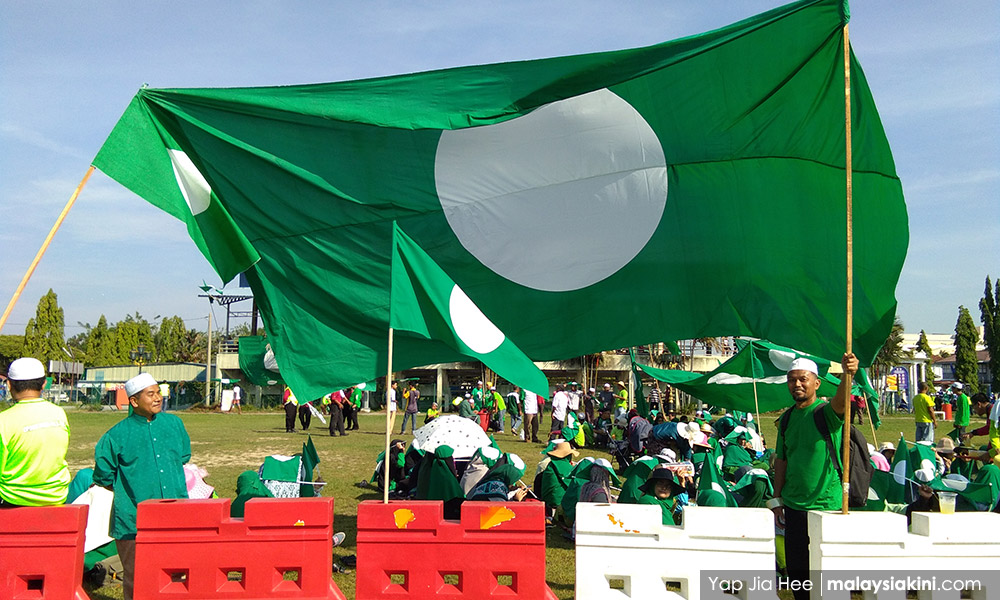COMMENT | Malaysia has long held a status of a moderate Muslim country if compared to the other parts of the Muslim world. But it was tarnished during the administration of Najib Abdul Razak, who lost without precedent in the 14th general election (GE) on May 9 due to serious corruption allegations and a soaring cost of living.
He introduced ‘wasatiyyah' or moderate Islam to his country people to gain Malay support and he mobilised this bigoted brand of Islam which could be seen in his national speeches and Friday sermons. This resulted in government agency-funded ban on intellectual books, active moral policing on the minorities and propaganda road tours to induce fear and anger against so-called ‘anti-Islam machinery that included human rights defenders and opposition politicians.
In Germany, Angela Merkel is struggling with her open-door policy for migrants and refugees. Never since the World War II has a far-right nationalist party won seats in the Parliament – this until its 2017 national election. The Alternative für Deutschland (AfD) victoriously obtained 12.6% of the votes largely based on the politics of fear – race and religion.
Nevertheless, Merkel’s government has positively addressed the fear from both sides – majority and minority groups – in its integration programme to curtail rising anti-Muslim, neo-Nazi and Islamist extremism. Instead of further isolating any group or ignoring the problematic reality, they have invested significantly in the education sector in promoting cross-culture, German language and law.
Basically, what Malaysia needs is a national re-integration programme to address racial and religious disfranchisement. It has become systematic and alarming. In 2015, Pew Research revealed that 11% of Malaysian Muslims hold a favourable view of the Islamic State. It is preposterous to think that Malaysia is still fine even though we don't mirror Pakistan or Somalia where violence is prevalent.
But that very 11% are vulnerable to causing discrimination and violence at any time of which the end result will cost the state money, intelligence and economic risks. Hence, preventive measures in our education sector should be the state's priority to change attitudes and mindsets.
The government needs to reclaim a narrative of Islam that is more humanist, egalitarian and inclusive for all citizens. Otherwise, this would only strengthen PAS’s rigid and political Islam nationwide. Islamist PAS is the second largest opposition party which now has control over two states in the East Coast. These two states are 'political tools' for them to smear the government’s ‘religiosity’.

A reform in education is vital to raise a critical-minded and inclusive younger generation. The school curriculum should emphasise more on ethics, the Malaysian identity and peaceful conflict resolutions. Students from all kinds of schools should experience themselves the inter-religious and inter-cultural processes, not just in a dry classroom setting but in honest dialogues or festivities blending in with other races and genders.
International instruments
Meanwhile, the academic freedom in universities should be restored for students to enjoy the liberty to write, speak and be involved in any organisation and to organise programmes on almost every critical issue.
Malaysia must also take a paradigm shift in sending Malaysian students abroad to study Islam. Universities like al-Zitouna in Tunisia, al-Qarawiyyin in Morocco and many in Indonesia offer more robust and contemporary Islamic studies. These Muslim countries also have a more lenient position on Islam that Malaysia should reinforce its education and expertise exchange to empower one another.
Religious leaders from all faiths, syariah judges and community leaders – also referred to as social influencers – must be exposed to democracy, political science, law and human rights to understand the state policies from multiple angels and not just from the religious perspective. And that the state's operations are complex and reformative according to our progression in the 21st century.
On religious freedom, the government must adopt, localise and mainstream the international instruments in Malaysian education, for example, the Beirut Declaration and 18 commitments on “Faith for Rights” 2017 and the Marrakesh Declaration 2016 – also negotiated with the Muslim scholars across the world – to foster the development of peaceful societies which uphold human dignity and equality for all and where diversity is not just tolerated but fully respected and celebrated.
The new government must engage closely with civic and human rights civil society organisations (CSOs) to realistically and gradually engineer policy change and public intellectualism.
In Germany, prevention and de-radicalisation programmes are sub-granted by the government to CSOs. They are given access to carry out programmes with schools, teachers and parents. This has successfully built a society strongly-resistant towards any sort of extremist ideology such as hate speech and xenophobia.
The new Malaysian government and all Malaysian CSOs need each other for the new Malaysia. Malaysia cannot afford of losing bright and talented people who are determined to help rebuild this country. For too long, the right-leaning radical Islamist and Malay supremacist movements were favoured with power and money to dictate intolerant Islam and create enmity with pro-human rights CSOs.
This administration needs to start now to set a good threshold to prevent and curtail extremist ideology in line with international standards. The damage is already visible but it is not too late to repair it through lifelong education for the society. What you plant today is what you will harvest in the future.
AIZAT SHAMSUDDIN is a human rights and counter-extremism advocate with Komuniti Muslim Universal (KMU) and fellow at the Institute for Foreign Cultural Relations, Germany.
The views expressed here are those of the author/contributor and do not necessarily represent the views of Malaysiakini.

